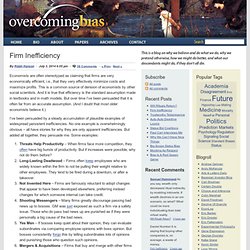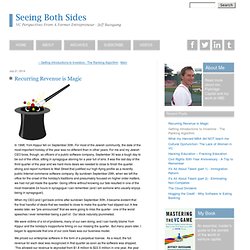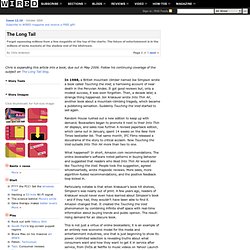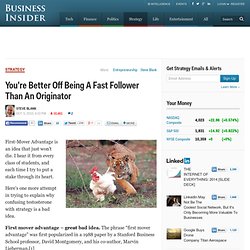

Firm Inefficiency. Economists are often stereotyped as claiming that firms are very economically efficient, i.e., that they very effectively minimize costs and maximize profits.

This is a common source of derision of economists by other social scientists. And it is true that efficiency is the standard assumption made in textbooks and in math models. But over time I’ve been persuaded that it is often far from an accurate assumption. (And I doubt that most older economists believe it.) I’ve been persuaded by a steady accumulation of plausible examples of widespread persistent inefficiencies. Threats Help Productivity – When firms face more competition, they often have big bursts of productivity. My working hypothesis to explain these inefficiencies is that the people and supporting coalitions closest to them tend to gain from them, and that selection pressures on political coalitions are often much stronger than selection pressures on firms. ShareThis Tagged as: Management, Regulation, Work Trackback URL: Recurring Revenue is Magic.
In 1998, Yom Kippur fell on September 30th.

For most of the Jewish community, the date of the most important holiday of the year was no different than in other years. For me and my Jewish CEO boss, though, as officers of a public software company, September 30 was a tough day to be out of the office, sitting in synagogue atoning for a year full of sins. It was the last day of the third quarter of the year and we hard more deals we needed to close to finish the quarter strong and report numbers to Wall Street that justified our high-flying profile as a recently public Internet commerce software company.
By sundown September 29th, when we left the office for the onset of the holiday's traditions and presumably focused on higher order matters, we had not yet made the quarter. Going offline without knowing our fate resulted in one of the most miserable 24 hours in synagogue I can remember (and I am somone who usually enjoys being in synagogue!).
Here's why recurring revenue is so magical: Why do Nigerian Scammers Say They are from Nigeria? How Strong Are Network Effects Online, REALLY? Wired 12.10: The Long Tail. Forget squeezing millions from a few megahits at the top of the charts.

The future of entertainment is in the millions of niche markets at the shallow end of the bitstream. By Chris AndersonPage 1 of 5 next » Chris is expanding this article into a book, due out in May 2006. Follow his continuing coverage of the subject on The Long Tail blog. Story Tools Story Images Click thumbnails for full-size image: In 1988, a British mountain climber named Joe Simpson wrote a book called Touching the Void, a harrowing account of near death in the Peruvian Andes. Random House rushed out a new edition to keep up with demand.
What happened? Particularly notable is that when Krakauer's book hit shelves, Simpson's was nearly out of print. This is not just a virtue of online booksellers; it is an example of an entirely new economic model for the media and entertainment industries, one that is just beginning to show its power. Why "Winner-Take-All" Environments Are Bad For Business. You're Better Off Being A Fast Follower Than An Originator. First-Mover Advantage is an idea that just won’t die.

I hear it from every class of students, and each time I try to put a stake through its heart. Here’s one more attempt in trying to explain why confusing testosterone with strategy is a bad idea. First mover advantage – great bad idea. The phrase “first mover advantage” was first popularized in a 1988 paper by a Stanford Business School professor, David Montgomery, and his co-author, Marvin Lieberman.[1] This one phrase became the theoretical underpinning of the out-of-control spending of startups during the dot-com bubble. The irony is that in a retrospective paper ten years later (1998), [2] the authors backed off from their claims.
Fast Followers – a better idea . The Race to Fail First . Ford vs. If the car business is too removed from high tech as an example, how about the story of Overture. Google is a $25 billion dollar company with most of its revenue from AdWords. Overture was acquired by Yahoo for $1.6 billion. Lessons Learned.